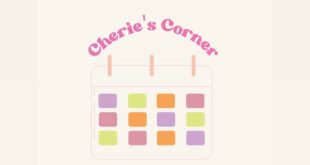With hands trembling and heart racing, I struggle to bubble in my last answer on my scantron sheet. It all has to do with one simple thing: the fear of failure. I feel light-headed as I turn my paper in and realize my test anxiety is at an all time high. However, I’m not alone in my situation.
According to The Conversation, one in five college students have anxiety or depression. Over the past couple of years, this number has only grown. Also, anxiety and depression are the top reasons that college students seek counseling, according the Center for Collegiate Mental Health report.
There are many factors that can affect college students struggling with anxiety or depression. For example, technology and social media are among the most prevalent dangers according to The Conversation. Excessive use tends to impair social interactions and leads to an increased sense of isolation. Many college students are living two separate lives, one virtual and one real. This has been well documented in research studies. Studies shown in ISAD have found that mobile phone addiction, as well as excess smartphone use, is also associated with increased sleep disturbance, depression, anxiety and overall stress. For example, one study from liebertpub.com found that almost 50 percent of college students woke up at night to answer text messages.
However, there are other factors. It is not uncommon for students to seek medical assistance in order to do well in school. According to Online Wiley, the number of college and high school age students taking drugs such as Ritalin and Adderall has skyrocketed. While these can be beneficial with people with ADD or ADHD, there are risks when taking them without these disorders. These side effects include anxiety and depression.
Another factor stated by Springer is simply that rates of depression have risen over the last 20 years, along with the component of bullying. Students who reported having been bullied have significantly higher rates of depression and anxiety. According to the Journal of American College Health, cigarette smoking has also been shown to increase anxiety, depression, and sleep problems. Fortunately, the rate of cigarette smoking and e-cigarette use continues to decline with the rate of past-month use declining to around 16 percent of college students in 2016.
These problems don’t always have simple solutions, though. Even hotlines and 24 care assistance does not seem to be enough according to Ovid. According to their study, when universal access to health care is not provided, most students with mental health disorders do not receive treatment. The good news is that there is a solution that can work, but only if there is a buy in at every level of society.
Ironically, while technology can cause anxiety and depression, it can also be used to treat it, according to The Conversation. That is, computers, iPads and smartphones can be used to virtually bring a mental health professional to the student where he or she is, be that in their dorm room or off campus.
If you or someone you know is experiencing anxiety or depression, you should consider the VSU counseling center. The services are free and confidential for all students. For more information, please visit the VSU counseling center website to find any information you may need about the staff, services, student resources or frequently asked questions.
Story and photo by Savannah Oliver, staff writer.
For more Campus Life stories, click here.
 The Spectator The independent student newspaper of Valdosta State University
The Spectator The independent student newspaper of Valdosta State University






